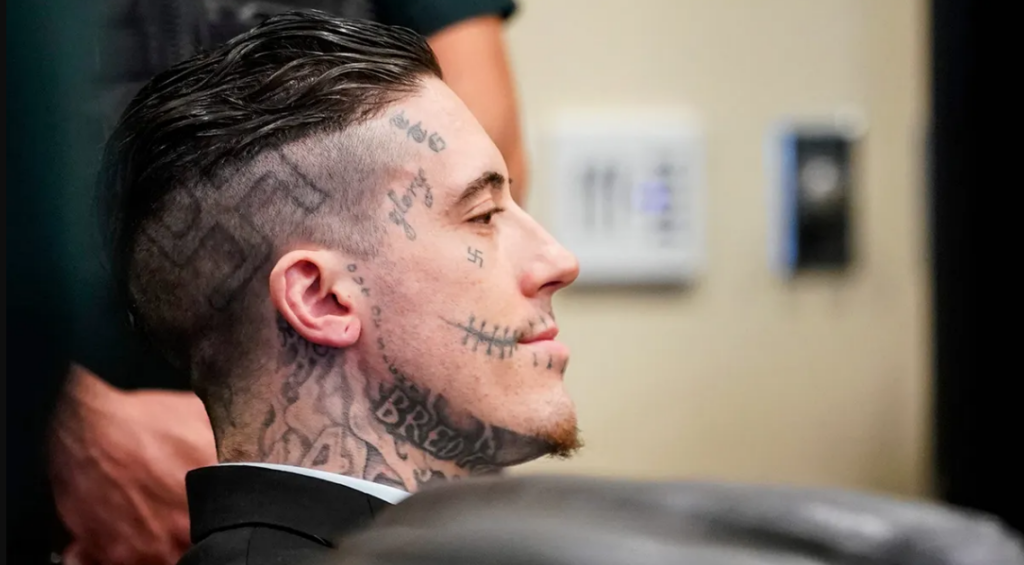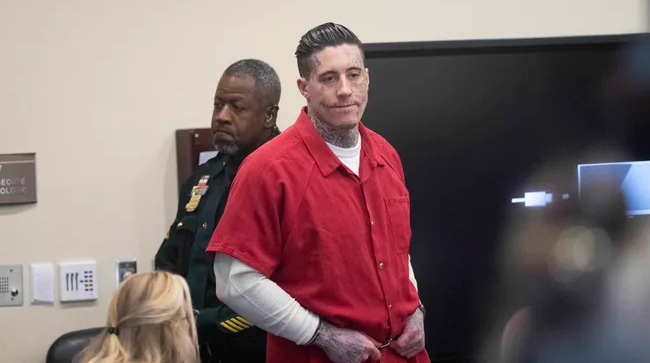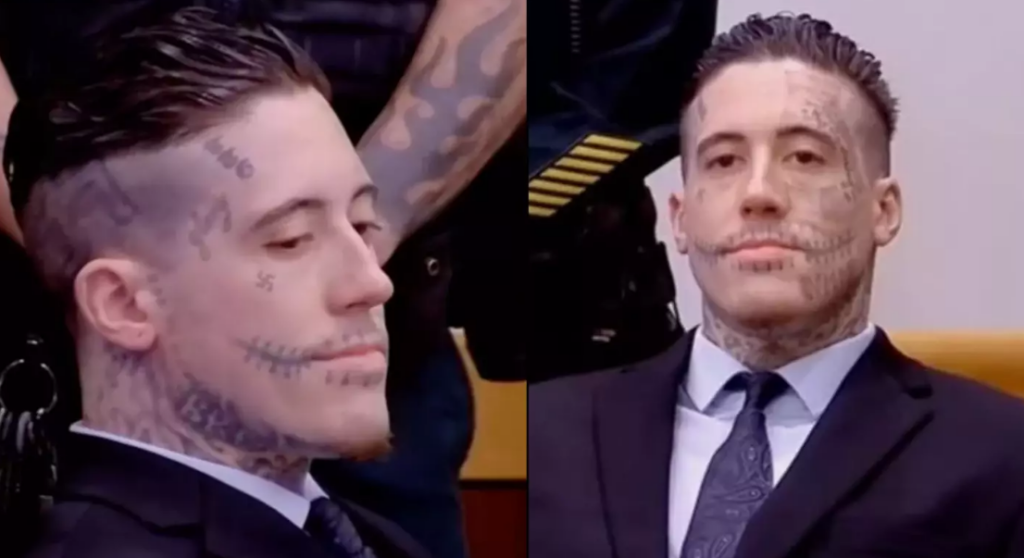In the annals of modern crime, few cases have captured public fascination quite like that of Wade Wilson, infamously dubbed the “Deadpool Killer.” His story has not only piqued interest due to the severity of the crimes committed but also because of the peculiar moniker that links him to the Marvel universe’s infamous antihero. This blog post dives into the depths of the case, providing a comprehensive look at who Wade Wilson is, what he did, and how his actions have resonated across society.
What Did Wade Wilson Do?
Wade Wilson’s criminal exploits culminated in a series of heinous actions which ultimately led to his conviction. The public’s morbid curiosity stems from two chilling murders—that of Kristine Melton and Diane Ruiz.
These brutal acts have been meticulously documented, highlighting the violence that unfolded during their last moments. The crime scenes unraveled a tale of calculated malevolence, escalating to Wilson’s eventual arrest following an initial confession that shocked the community.

Profile
| Name | Wade Wilson |
|---|---|
| Alias | Deadpool Killer |
| Crimes Convicted | Murder of Kristine Melton and Diane Ruiz |
| Initial Arrest | Following confession |
| Trial Outcome | Convicted |
| Current Status | Incarcerated, with ongoing legal appeals |
| Public Perception | Infamous due to crime severity and Deadpool nickname |
Background
| Category | Details |
|---|---|
| Early Life | Wade Wilson was born in a small town with limited opportunities, which influenced his later choices. |
| Education | He dropped out of high school and had minimal formal education. |
| Criminal Record | Prior to the murders, he had several run-ins with the law, including theft and assault charges. |
| Personal Life | Known for his volatile temperament and estranged relationships with family and peers. |
| Influences | Associates point to a fascination with violent media and antiheroes, notably the character Deadpool. |
| Circumstances Leading to Crime | Socio-economic struggles, combined with mental health issues and substance abuse, contributed to his path. |
Background of Wade Wilson
Wade Wilson’s life prior to the murders is a story marked by turmoil and a string of criminal activities. Born into difficult circumstances, his formative years were shaped by experiences that would later influence his descent into crime.
Understanding these aspects can provide insight into the psychological and societal factors preceding the murders. Moreover, the choice of his nickname links a fascinating cultural narrative to his real-life persona—a motif that intertwines fiction with the dark reality of his deeds.

Details of the Case
The intersection of events leading to the murder of Kristine Melton reveals complexities in Wilson’s relationships and psychological state. Simultaneously, Diane Ruiz’s untimely death offers a glimpse into the volatile nature of Wilson’s interactions.
Integral in piecing together this dark puzzle were accounts from family and friends, whose insights were pivotal during the investigation. The collective testimony from those close to Wilson painted a broader picture that entrenched his guilt.
The Trial and Sentencing
The trial of Wade Wilson was a dramatic affair that transfixed audiences. Central to the proceedings were the prosecution’s compelling arguments, which laid bare the extent of Wilson’s culpability.
The defense, however, sought to construct a narrative of mental instability, challenging the jury to consider mitigating factors. Ultimately, the jury’s decision echoed a societal longing for justice, with the sentencing eliciting mixed reactions from a deeply divided public.
Media and Public Perception
Media coverage played a monumental role in shaping how the public perceived Wade Wilson and the crimes he committed. Sensationalist headlines capitalized on the “Deadpool” connection, propelling the case into the limelight.
Social media also acted as a megaphone, amplifying the story’s reach and stirring discussions on crime, punishment, and media ethics. An examination of this phenomenon reveals how narratives can be skewed by catchy appellations and public frenzy.
| Media Coverage Impact | The intense media spotlight shaped and influenced public opinion, oscillating between morbid curiosity and outrage. |
| Social Media Role | Platforms like Twitter and Facebook were pivotal in spreading awareness and discussions about the case, often amplifying the narrative. |
| Sensationalism | The association with the “Deadpool” nickname added a sensational element to the coverage, affecting the story’s tone and reach. |
| Public Reaction | The case sparked a divided public response, with some seeing Wilson as a figure born of societal failures, while others focused on the gravity of his crimes. |
The Aftermath
Today, Wade Wilson’s fate hangs in the balance as legal appeals continue. The ripple effect of his actions extends beyond the courtroom, permeating the lives of the victims’ families, who persist in grappling with their grief.
Community responses have opened broader dialogues about the efficacy of justice systems and the contentious discourse surrounding the death penalty. Such conversations are essential in reevaluating how society administers justice and supports victims.
Conclusion
Wade Wilson’s case is more than just a headline; it’s a somber saga that speaks to the darker facets of human nature and societal systems. As we reflect on the aftermath, there’s a pressing need for informed dialogues around justice and victim advocacy. By learning from past occurrences, the hope is to construct a future where understanding and compassion underpin our approach to crime and rehabilitation.
Frequently Asked Questions
What were the motives behind Wade Wilson’s actions?
Motives remain speculative, with theories ranging from psychological instability to deeper societal influences.
How likely is Wilson’s sentence to be overturned on appeal?
Legal experts debate this, considering the gravity and provable details of the crimes.
How is the “Deadpool” nickname affecting public perception of the case?
This association has sensationalized the case, affecting impartial perceptions.
What measures are there for similar future cases?
Ongoing discussions focus on reforms in criminal profiling and media responsibility.


